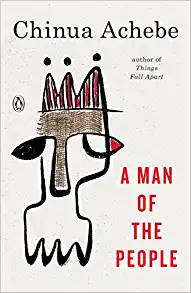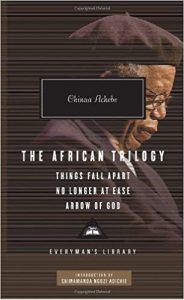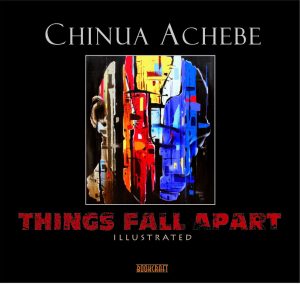Chinua Achebe a Nigerian author was well known as the founding father of African literature, a novelist, poet, essayist and a critic. With a literary vision that has profoundly influenced the form and content of modern African literature, Achebe documented Nigeria's colonization by Great Britain, its subsequent independence, and its post-colonial political struggles. His writings are among the first in English to present an intimate and authentic rendering of African culture, especially his first novel, Things Fall Apart (1958), which many critics have proclaimed a classic of modern African fiction.
Early Life and Education:
Born on November 16, 1930, Achebe was born into the Igbo ethnic group, and his early exposure to Igbo traditions and oral storytelling greatly influenced his later literary career. He was educated at the Government College in Umuahia before enrolling in 1948 in the first class at the newly established University College in Ibadan, run by the University of London. An English literature student, where he began to develop his passion for writing and storytelling. Achebe often contributed stories, essays, and sketches to the University Herald; these works were eventually collected in Girls at War and Other Stories (1972). After receiving his undergraduate degree in 1953, he began a twelve-year stint as producer for the Nigerian Broadcasting Company (NBC) in Lagos, the capital of Nigeria.
Notable Works:
Things Fall Apart (1958)
Achebe's debut novel, this masterpiece is widely considered one of the greatest African novels ever written. It tells the story of Okonkwo, a proud Igbo warrior, and the impact of British colonialism on his traditional society.
No Longer at Ease (1960)
This novel explores the challenges faced by Obi Okonkwo, a young Nigerian man educated in England, as he returns to Nigeria to work as a civil servant.
Arrow of God (1964)
Another of Achebe's acclaimed novels, it delves into the conflict between traditional Igbo beliefs and the encroachment of Christianity.
A Man of the People (1966)
This satirical novel provides a scathing critique of post-colonial African politics and corruption.
There was a country (2012)
This is a personal account by the Nigerian writer Chinua Achebe of the Nigerian Civil War, also known as the Biafran War. It is considered one of the defining works of modern African non-fiction. Released in October 2012, six months prior to Achebe's death, it is the author's last published book.
Awards and Honors
•
In 2007, Achebe was awarded the Man Booker International Prize for his body of work.
•
He received numerous honorary degrees from universities around the world.
•
Achebe was a member of the American Academy of Arts and Letters
•
Honorary doctorates from more than 30 colleges and universities.
•
He was also the recipient of Nigeria's highest award for intellectual achievement, the Nigerian National Merit Award.
Chinua Achebe's contributions to literature and his commitment to advocating for African voices made him an iconic figure in the world of literature and cultural studies. His legacy lives on through his powerful words and ideas.




